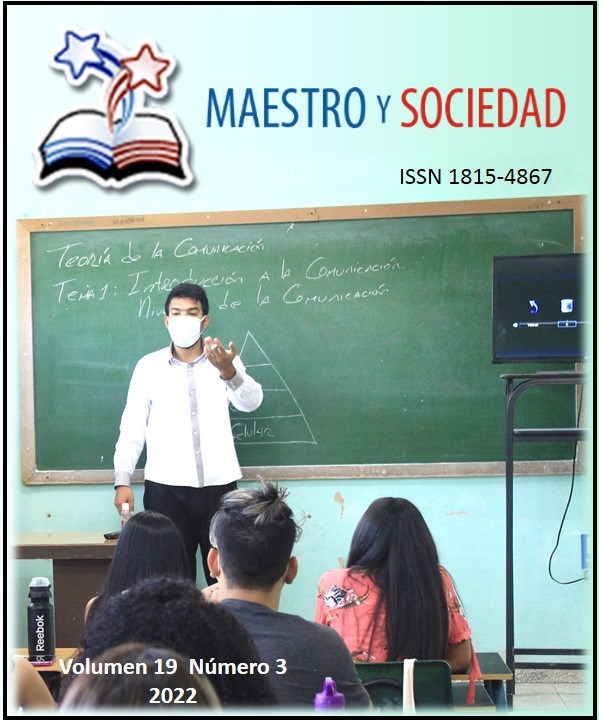The digital era: new ethical challenges for the educational one
The digital era: new ethical challenges for the educational one
Keywords:
It was digital, digitalización, ethical, new technologies of the informationAbstract
The current, denominated time was Digital, like virtual space, in its double digitalización slope and digital manipulation, allows the emergence of a space informacional open to all that that has access and digital interfaces and it is characterized by the speed of the communications that there is transforming the social environment in which live, and until our interactuar form. The danger is not the digitalización in yes, but assuming as given the digital thing before diverse actions. It is recognized that the educational work, is an ethical act since it is exercised responsibly, to avoid damage to educandos and colleagues that he/she is carried out sometimes unconsciously, to be linked to the own development and ends. The objective of this work is to meditate around the relationship it was digital, and new ethical challenges for the educational one.
References
Barandiaran, X. (2003). La Era Digital. http://barandiaran.net
Bernal, L. (2003). Nuevas tecnologías de la información: problemas éticos Fundamentales. Revista ACIMED, 11(3). http://www.acimed.sld.cu
Borrel, N., Feixas, M. y Marques, P. (2000). Funciones y competencias básicas del profesorado. Congreso Internacional de Docencia Universitaria e Innovación. http://www.acup.cat
Carrera, F. X., González, J. y Coiduras, J. L. (2016). Ética e investigación en Tecnología Educativa: necesidad, oportunidades y retos. RIITE. Revista Interuniversitaria de Investigación en Tecnología Educativa, 34-43. http://dx.doi.org/10.6018/riite/2016/261081
Fuente, H. (2008). La Universidad Humana Cultural: Reto latinoamericano a la Educación Superior. Universidad de Oriente.
Galán, M. (2010). Ética de la investigación. Revista Iberoamericana de Educación, (54).
Gisbert, M. (2001). El siglo XXI hacia la sociedad del conocimiento. Publicación de la Universitat Rovira i Virgili. http://dialnet.unirioja.es
González Soto, A. P., Gisbert, M., Guillen, A., Jiménez, B., Llado, F. y Rallo, R. (1996). Las nuevas tecnologías en la educación. http://www.uib.es/depart/gte/grurehidi.html
Jiménez, M. P. (2008). Ética informática. Revista digital Innovación y experiencias investigativas, (4). http://red.gnoss.com
Montuschi, L. (2010). Aspectos éticos de las tecnologías de la información y de la comunicación: la ética de la computación, internet y la worldwide web. Universidad del CEMA. http://www.ucema.edu.ar
Murolo, N. (2010). Cuatro conceptos para interpretar el cruce entre digitalización y sociedad. Revista Temas Sociales, 14(26). http://www.revistakairos.org
Olcott Jr. D., Carrera, X., Gallardo, E. E. y González, J. (2015). Ética y Educación en la era digital: perspectivas globales y estrategias para la transformación local en Cataluña. RUSC. Universities and Knowledge Society Journal, 12(2). 59-72. http://dx.doi. org/10.7238/rusc. v12i2.2455
Rodríguez-Porrero, C. y Gil, S. (2014). Ética y TIC. Ceapat. www.catalogo-ceapat.org
Published
How to Cite
Issue
Section
License
Copyright (c) 2022 Lenny Cecilia Mariscal-San Martin, Alejandro Ponce-Mariscal, Ángel Luis Cintra-Lugones, Julia Esther Céspedes-Acuña

This work is licensed under a Creative Commons Attribution-NonCommercial-NoDerivatives 4.0 International License.
This journal provides immediate open access to its content, based on the principle that offering the public free access to research helps a greater global exchange of knowledge. Each author is responsible for the content of each of their articles.



























 Universidad de Oriente
Universidad de Oriente 